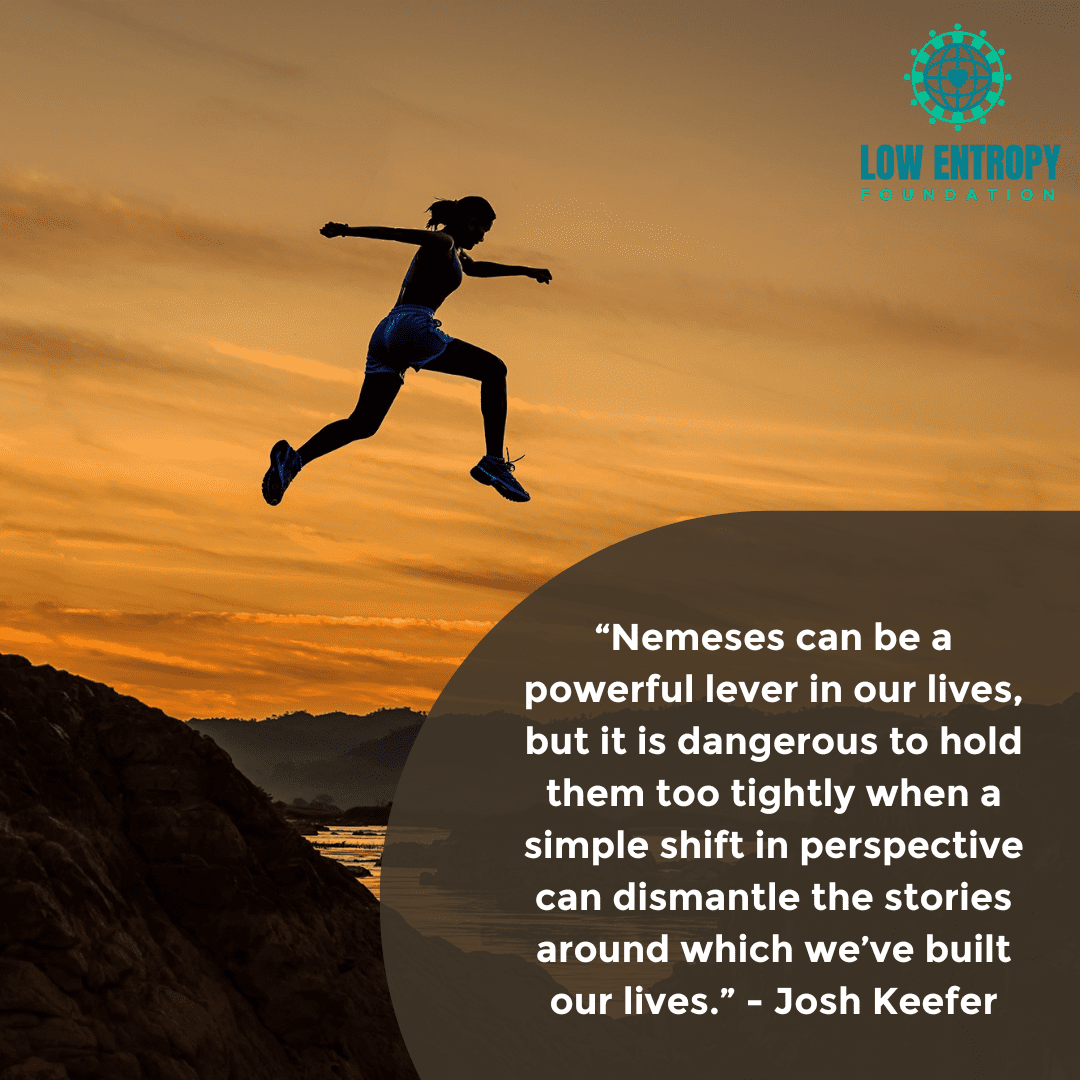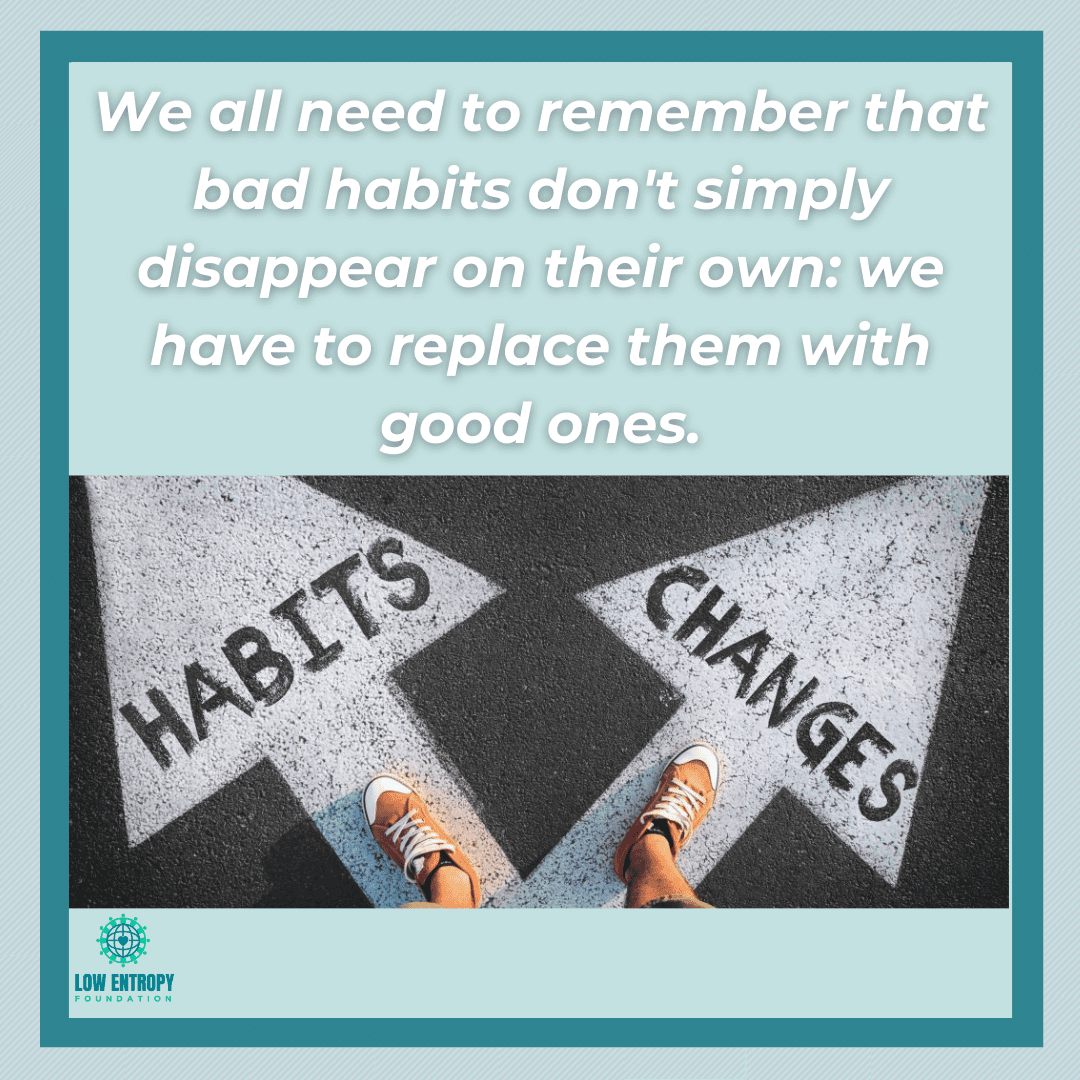Josh Keefer (he/him/his), Low Entropy Volunteer Writer
We spend our lives surrounded by stories, and whether it is nature or habit, story is foundational to the way we think. Not only is story present in movie theatres (and just about every other screen we spend time with), it also frames the way we share with our friends and family, and shared stories are what help knit our communities together. There is a particular element of story, however, that is rife in our more fantastical narratives but less present—or less obvious—in everyday life: the nemesis. The barrier between the narratives we build and the reality we inhabit can be a permissive one; when a nemesis crosses over into our lives, its presence can be powerful, motivating—but never nonfictional.
Nemeses, or antagonists, serve as the fulcrum around which many stories turn. In a classic person vs. person story, the protagonist represents a set of principles that will be tested through a struggle with the antagonist, who epitomises the opposite of our protagonist’s virtues. A conflict ensues, principles are tested, and the protagonist is victorious—if not literally, then metaphorically, via swaying their nemesis to their own principles, or some greater poetic justice finally finding purchase. We arrive at a conclusion which, in the laboratory conditions of a fictional story, are clear and striking: one set of principles is confirmed superior by their victory. No alternative conclusion is allowed, or perhaps even wanted. Stories give us something that I think we all look for in real life: an assertive answer that closes a question, leaving no room for doubts or contradictions.
The stories present in our lives are also immensely powerful. They are unmatched in their role as fonts of motivation, and a motivated person is capable of far more than a disinterested one. The proper motivation drives us to push ourselves beyond our circumstance. I have an anecdote that, though personal, is not uncommon: a high school classmate of mine had a teacher tell him that he wasn’t intelligent enough to take advanced placement classes. Said classmate is now a doctor, and while he was taxing his memory during his laborious journey to his MD, he never forgot that teacher’s sentence. If I were to ask him, he would say that teacher was his nemesis, but if I were to ask the teacher, he would probably not remember that student. Or, for a more public example, take one retired Michael Jordan, who admitted that even while he was reigning champion and widely regarded as the best basketball player ever born, he would invent stories to keep driving his performance upward. A victorious Jordan would arrive at the post-game press conference and announce that his game was fuelled by the trash talk of one of his opponents. The reporters would race over for a comment from said opponent, only to find him bewildered, stating he never said a word—after all, who would?
Nemeses are most powerful, not for themselves, but for the power they give the protagonists. What enables us to use nemeses to our advantage is a trait we all have in common with Michael Jordan: we see ourselves as the protagonist, and are driven to bring the story to its triumphant conclusion. The assumption that we are always the protagonist, however, is a dangerous one. When a fictional story is designed, the principles come first, then the protagonist is created around them, but in our stories, the protagonist is already present, making the principles come second. Are our principles virtuous by virtue of themselves, or do we think them virtuous just because we have them?
Nemeses can be a powerful lever in our lives, but it is dangerous to hold them too tightly when a simple shift in perspective can dismantle the stories around which we’ve built our lives. Our protagonism can pull us too far from the objective reality that there are too many people on a global, national, or even community scale for everybody to be comfortably sorted into protagonists and antagonists. All I can say for certain is that we are people making very messy stories through our relationships with one another. Constructing nemeses can fuel us to great achievements, but trusting our constructs too much can pull us from our real relationships and into our own fiction.
—
Josh Keefer (he/him/his) is an aspiring writer from North Vancouver, writing primarily fiction and posts like these.








